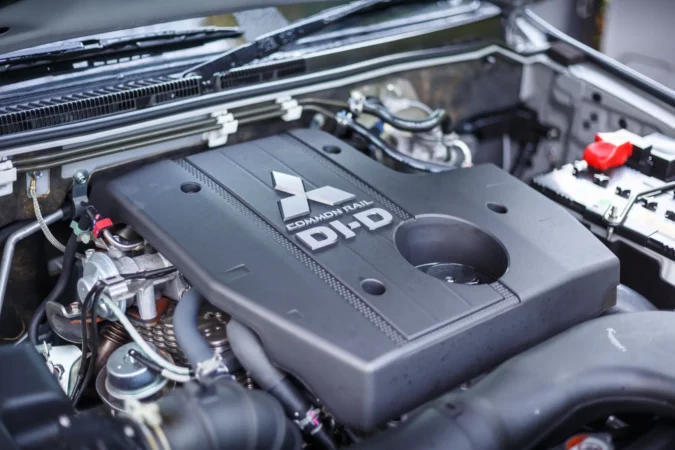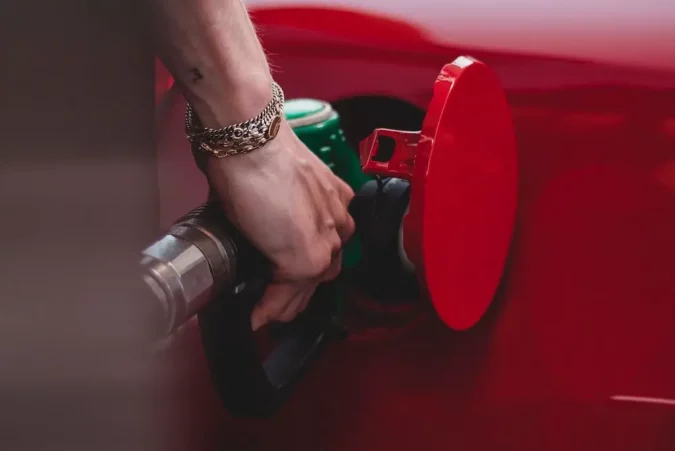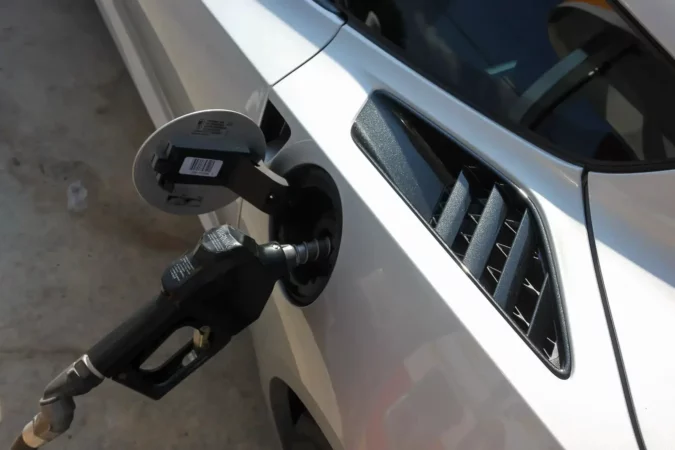The country is run on diesel fuel. Consider all the ships, buses, and trucks you pass every day if you think that sounds dramatic. As opposed to your car’s likely gasoline engine or electric motor, the majority of them are powered by diesel engines. It is one of the most significant fuels in use today, but is diesel cheaper than gas?
Diesel fuel and diesel vehicles are frequently more expensive. However, they compensate for the extra cost by delivering greater gas mileage and holding their value better than gas vehicles. That is caused by variations in the fuel’s composition and how each engine consumes fuel. The same raw resources, crude oil, and natural gas are used to make both gasoline and diesel fuel.
In spite of this, a gallon of diesel fuel costs substantially more than a gallon of gasoline. Why is it the case? We have conducted an in-depth study on fuel prices to assist you in understanding this complex topic. Keep reading to find out what factors affect fuel prices and why diesel is so much more expensive than standard gasoline.
- Diesel Engine
- Diesel Fuel
- Types Of Diesel Fuel
- Diesel Prices
- Diesel vs Gas
- Diesel Engine vs Gas Engine
- Diesel vs Gas Truck
- Final Conclusion
- FAQs
Diesel Engine
Because both diesel and gasoline vehicles employ internal combustion engines, they are comparable. One distinction is that diesel engines utilize a compression-ignited injection system as opposed to the spark-ignited system found in the majority of gasoline-powered cars. Diesel fuel is injected into the engine’s combustion chamber in a system that uses compression ignition.
It is then ignited by the high temperatures reached when the gas is squeezed by the engine piston. Many diesel vehicles include additional after-treatment components, unlike gasoline vehicles, These help minimize particulate matter and convert harmful nitrogen oxide (NOx) emissions into harmless nitrogen and water.
Diesel is a typical transportation fuel, and several other fuels have similar engine architectures. The diesel engine has the best thermal efficiency (engine efficiency) of any practicable internal or external combustion engine. This is due to its extremely high expansion ratio and innate lean burn, which facilitates heat dissipation via the surplus air.
It is possible to design diesel engines with either two-stroke or four-stroke combustion cycles. They were initially employed as more effective alternatives to stationary steam engines. They have been employed in submarines and ships ever since the 1910s.
Later on, they became a common sight in railway locomotives, buses, trucks, heavy machinery, agricultural machinery, and power plants. They progressively started to appear in a few cars in the 1930s. The energy crisis of the 1970s demanded greater fuel efficiency.
This led to the majority of major automakers providing diesel-powered versions, even in very small cars. However, because diesel engine emissions are more difficult to regulate, they are currently mostly used in larger on- and off-road vehicles in the United States.
Diesel Fuel
Diesel fuel, so named after its creator, German engineer Rudolf Diesel, is the distillate fuel oil sold for use in automobiles with compression ignition engines. His initial creation was patented in 1892. Diesel fuel is refined from crude oil and biomass ingredients.
Diesel engines are used in the majority of delivery and goods trucks, as well as in some cars, light trucks, buses, trains, boats, agriculture, construction, and military equipment. It is also used to power diesel-engine generators, which are found, among other places, in remote settlements.
Diesel generators are commonly used for backup and emergency power supply in industrial facilities, institutional facilities, and hospitals. If you want to learn more about diesel fuel, check out our insight into at what temp does diesel freeze. Moreover, our discussions on what is blow-by in a diesel engine.
Gasoline refineries transform crude oil into the majority of the diesel fuel that is used in the United States. From each 42-gallon (U.S.) barrel of crude oil, U.S. gasoline refineries yields 11 to 12 gallons of diesel fuel on average. Additionally, biomass-based diesel fuels are also produced and used in the United States.
Before 2006, high levels of sulfur were present in the majority of diesel fuel sold in the US. Diesel fuel contains sulfur, contributes to air pollution emissions, and is harmful to human health. The U.S. Environmental Protection Agency enacted regulations in 2006 requiring diesel fuel sold for usage in the country to have less sulfur.
The regulations were implemented gradually, starting with diesel fuel marketed for use in on-road vehicles and finally encompassing all non-road diesel fuel. Ultra-low sulfur diesel (ULSD), with a sulfur level of 15 parts per million or less, is the type of diesel fuel that is currently offered for sale in the United States for on-highway use.
Types Of Diesel Fuel
The raw material for all hydrocarbon-based fuels is crude oil, which is refined via a technique known as distillation. A variety of fuels, including heavy fuel oil, diesel, and gasoline, are produced by this method. Crude oil enters a distillation tower where it will boil and produce vapors as a part of the refinement process.
On several trays at various levels, these vapors will condense and settle. The heavier molecules locate themselves near the bottom of the trays, whereas the lighter molecules locate themselves on the upper trays. The type of fuel being collected will depend on how each tray is positioned vertically.
Fischer and Tropsch devised a method in the 1920s for producing synthetic diesel fuels from feedstocks that include carbon, like coal or natural gas. Excellent characteristics of synthetic diesel fuels include a very high cetane number and a complete absence of sulfur.
They may be combined with petrodiesel or utilized in already-built diesel engines without changes. When using synthetic fuel, numerous studies demonstrated considerable decreases in all regulated diesel pollutants, including NOx and PM.
Difference Between Diesel 1 And 2
Diesel fuels are divided into 3 categories: 1D (#1), 2D (#2), and 4D (#4). The distinction between these classes is determined by a fluid’s viscosity (the characteristic that prevents fluid from flowing freely) and pour point (the temperature at which a fluid will flow).
Low-speed engines frequently use fuels in the #4 range. Since #1 fuel has a lower viscosity, it is recommended in cold climates. To generate reliable winter fuel, diesel #2 which is primarily used in warm weather, is occasionally combined with diesel #1. While it used to be customary to show the fuel number on the pump, many gasoline stations no longer do so.
Is Diesel Cheaper Than Gas: Diesel Prices
The price of crude oil, refinery processing, marketing and distribution, and retail station operation are all included in the price of producing and distributing diesel fuel to customers. Refiners, marketers, distributors, and owners of retail stations all have expenses and make profits (and sometimes losses) that are reflected in the retail pump price.
The proportion of these costs that make up the retail price of diesel fuel fluctuates over time and across the nation. Diesel fuel is produced and delivered to consumers at a cost that takes into account the price of crude oil, refinery processing, marketing, distribution, and retail station operations.
The retail pump price accounts for the expenses, earnings, and occasionally losses, of the refiners, marketers, distributors, and owners of retail stations. Each region of the nation has a different relative contribution of these cost factors to the retail price of diesel fuel over time. Taxes at the state, local, and federal levels are also included in the retail price at the pump.
Prior to 2004, the average cost of diesel fuel was often less expensive than the average price of ordinary gasoline. During several winters when there was a large demand for distillate heating oil, the price of diesel increased more than the price of gasoline. For a number of factors, the cost of diesel fuel has consistently outpaced the cost of ordinary gasoline since September 2004.
Diesel and other distillate fuel oil demand grew consistently on a global scale, with China, Europe, and the US showing the greatest demand. The cost of producing and distributing diesel fuel was impacted in the US by the switch to ultra-low sulfur diesel (ULSD) fuel. The federal excise tax on diesel fuel is also 6 cents per gallon greater than the tax on regular gasoline.
Is Diesel Cheaper Than Gas: Diesel Vs Gas
Both gasoline and diesel are refined from crude oil. However, gasoline is more refined, volatile, and has a thinner density. Because gasoline burns more quickly, it can provide greater power or horsepower. Diesel fuel on the other hand has a thicker density and evaporates more slowly.
This unique chemical makeup is the reason why you don’t want to explore what happens if you put gas in a diesel engine. Diesel produces 20% more energy than the same amount of gasoline because of its higher energy density.
Due to their ability to produce more energy at lower RPMs and greater torque, diesel engines are preferred in large machinery. Gasoline engines, on the other hand, are utilized in lightweight cars that require less torque and more horsepower to move faster.
Diesel has the consistency of light oil despite being a denser fuel. This indicates that when it moves around, it continuously lubricates the cylinder numerous times. Additionally, because of the larger engine size, the oil can circulate more freely inside, making it easier for it to lubricate internal parts.
Diesel likewise becomes less viscous and less thick as the temperature rises. It also requires less effort to burn, which lessens the general wear and tear on a diesel engine. However, compared to diesel, gasoline is more acidic and acts as a solvent.
Therefore, as gasoline burns inside the engine, corrosion results in rougher engine surfaces. As a result, the gasoline engine experiences more internal wear and tear.
Is Diesel Cheaper Than Gas: Difference Between Diesel And Gas
Diesel engines have massive cylinders, big crankshafts, powerful pistons, and many gears. These power plants are straightforward and run on simple gear operations. Diesel engines are also constructed from sturdy materials to support continuous operation. There is little movement and less wear and tear because engine gears are usually fixed in place.
However, gasoline engines are intricately designed devices. They use hundreds of tiny pieces that require greater precision while working mostly with chains and belts. Regular stop-and-go driving puts additional strain on engines, which causes wear and tear.
Diesel and gasoline differ significantly from one another in terms of fuel economy. The heavier density, low rpm performance, and higher compression ratio of diesel vehicles make them generally more fuel-efficient than gasoline vehicles.
Diesel is, as previously said, 20% more efficient than gasoline. Because of its greater density, it can burn less fuel while yet producing more energy. A diesel engine can also provide the same amount of power as a gasoline engine, but at a lower RPM. In other words, a slower rate of fuel combustion for the same output.
The increased compression ratio, which has a direct impact on thermal efficiency, comes next. The higher it is, the more effectively the fuel will burn. This implies that there will be more rich explosions and more energy production.
A gasoline engine’s compression ratio, however, will never be that high. If it happened, too much heat would cause the fuel to ignite. This will lead to uncontrollable explosions that would damage engines. As a result, gasoline engines need a low compression ratio, which leads to less effective combustion.
Fuel economy also depends on how each vehicle is operated. Big rigs, typically employ diesel engines. The majority of city drivers use gasoline-powered vehicles. More fuel is consumed due to stop-and-go driving.
Is Diesel Cheaper Than Gas? Comparing Diesel Engine Vs Gas Engine
Internal combustion engines, including gasoline and diesel ones, burn a combination of fuel and air. The cylinders of the engine compress and ignite the cocktail. Diesel engines lack spark plugs, which are needed to provide the spark necessary for ignition in gasoline engines. In order to start the engine, they utilize something known as diesel glow plugs.
We’ve previously discussed this in our overview of what a glow plug is, as well as how many spark plugs does a diesel engine have. A diesel engine compresses at a ratio of between 14:1 and 25:1, whereas a gasoline engine compresses at a ratio between 8:1 and 12:1. This higher compression ratio of the diesel engine results in better efficiency.
Gasoline engines typically use port fuel injection or carburetion, in which the fuel is injected right before the intake stroke (outside the cylinder), long before the air reaches the cylinder. Therefore, during the intake stroke and subsequent compression, all of the fuel is loaded into the cylinder in a gasoline engine.
The compression of the fuel/air combination regulates the engine’s compression ratio. Because if it compresses the air too much, it would spontaneously ignite and knock. Diesel fuel is injected directly into the cylinder in direct fuel injection diesel engines.
The compression ratio of a diesel engine can be significantly higher because it compresses only air. Power is produced in proportion to the compression ratio. Diesel fuel injectors must, be able to endure the heat and pressure inside the cylinder while still delivering the fuel in a fine mist.
Certain diesel engines come with unique induction valves or pre-combustion chambers. This is to make sure the mist is dispersed uniformly throughout the cylinder. Modern diesel engines have high-pressure common rail fuel systems.
Is Diesel Cheaper Than Gas? Comparing Diesel Vs Gas Truck
There is no one golden solution when deciding between gasoline and diesel trucks for your daily driver. Keep your demands in mind while you compare the two powertrains’ lifespans, maintenance costs, power, and other factors rather than trying to find a conclusive answer to this frequent automotive conundrum.
We’ve compiled a concise summary of the main distinctions to make choosing between them even simpler.
Is Diesel Cheaper Than Gas? Comparing Diesel Vs Gas Truck: Cost And Maintenance
One of the primary considerations for many clients when shopping for trucks is price. Even, if you’re opting for the cheapest diesel truck models. Comparing prices is not too difficult because some trucks, like the Ford F-250 and the Ram 2500, have both diesel and gasoline engine options. You’ll have to pay money if you wish to go from a gasoline engine to a diesel one.
Additional costs for the Ram 2500 are $9,495 and $10,495 respectively for the Ford F250. If cost is your top priority, the best option for you will be a gas truck. You can save thousands of dollars by choosing a gas truck over a diesel one, provided that the truck can perform all of the tasks you require.
Diesel engines are the best when it comes to toughness and longevity. You can learn more in our guide on how long do diesel engines last. It is known that they can travel hundreds of thousands of miles. Diesel engines are capable of handling higher compression ratios than ordinary gasoline engines. This is because their engine blocks and internals are built with sturdier materials.
Of course, how much you drive the truck will determine if that is important, and it is important to remember that diesel maintenance will cost more. As repairs are needed, owning a diesel truck will become more expensive than driving a gasoline truck. For additional reference, check out our explainer on the most reliable diesel truck models.
Is Diesel Cheaper Than Gas? Comparing Diesel Vs Gas Truck: Fuel Economy And Towing
Diesel engines typically have efficiencies of 20% to 35% higher than their gasoline engine counterparts. Under normal conditions, the fuel is more efficient because it has more energy (10% to 15% more). When hauling, MPGs usually decrease, however, diesel engines normally have a considerably smaller loss than gasoline engines.
It’s critical to understand how different trucks compare against each other before making a truck purchase for towing. You must abide by the towing numbers regardless of whether you tow frequently or occasionally. However, diesel is the undisputed champion when it comes to hauling.
Is Diesel Cheaper Than Gas? Comparing Diesel Vs Gas Truck: Resale And Depreciation
Knowing that your new car will lose value as soon as you leave the dealer’s lot is a hard pill to swallow. Due to their normal rapid depreciation, most vehicles aren’t particularly good investments. A diesel vehicle’s worth, according to Green Car Reports, is often 60% to 70% more than a gasoline-powered vehicle.
A diesel vehicle gives you the best opportunity of saving more money in your pocket if you don’t intend to keep your truck for an extended period of time. Being upside down on your car is something you want to avoid, especially if you didn’t put much money down when you bought it.
Is Diesel Cheaper Than Gas: Conclusion
Diesel and gasoline each offer specific benefits. Generally speaking, a gasoline engine will be enough if you use it regularly and travel less than 12,000 miles annually. Additionally, you should avoid a diesel if you prefer driving a vehicle suitable for “get-up-and-go.”
However, a diesel vehicle will make sense if you drive a lot (15,000 miles or more annually), haul heavy loads, or carry heavy cargo. Yes, diesel will cost more upfront, but this is countered by its overall efficiency. A diesel engine is the best option if you need the engine to run at idle for extended periods of time – in particular, the best diesel engine and the best diesel cars in the USA.
The U.S. Energy Information Administration reports that since 2004 diesel costs have consistently been higher than gasoline prices. However, the price difference has grown more than ever in the past year. You will already pay an extra $1 per gallon for fuel if you drive a diesel vehicle, which is a significant amount. That’s unless you happen to live in what state has the cheapest gas prices.
Diesel is significantly more expensive than gasoline for a variety of factors including both the result of recent changes, and problems with lengthy histories. It’s also vital to keep in mind that oil is a global commodity, even though many of the contributing variables mostly relate to American politics. What you pay at the pump is influenced by events occurring across the globe.
FAQs On Is Diesel Cheaper Than Gas
Why Is Gas So Expensive
Crude oil prices, domestic production, taxation, and global oil demand all have an impact on gasoline prices in the USA. Supply disruptions can be caused by both geopolitical and natural calamities. Additionally, the distribution and refinement costs are also significant factors. Overall, a complicated web of political and economic forces determines gasoline prices.
Why Is Diesel So Expensive
The global demand and supply, taxes, costs associated with refining, and transportation costs all have an impact on diesel pricing in the United States. Diesel fuel, however, often costs more because of its higher refining costs and federal rules that demand lower sulfur content. Demand from the transportation and industrial sectors can also cause changes in fuel prices.
Why Is Diesel More Expensive Than Gas
Due to greater refinery expenses and federal laws demanding lower sulfur content in diesel fuel, it is often more expensive. The transportation and industrial sectors have a larger demand for diesel engines since they are typically more fuel-efficient than gasoline engines. Furthermore, diesel fuel is subject to higher taxes in some jurisdictions, which raises the cost of diesel fuel in comparison to gasoline.
How Are Gas Prices Determined
Global gasoline prices are influenced by the supply and demand for crude oil, geopolitical developments, and production caps set by oil-producing nations. The cost of transportation and currency exchange rates both factor into the final cost. Gasoline prices around the world are influenced by the intricate and dynamic global oil market.
Is Diesel Better Than Gas
Diesel engines are preferable to gasoline engines for long-distance travel and heavy-duty applications since they are often more durable and fuel-efficient. However, diesel fuel does produce more emissions than gasoline, and is often more expensive, which adds to air pollution and climate change. Individual requirements and preferences ultimately determine whether diesel or gasoline is preferable.
How Does A Diesel Engine Work
The combustion chamber of a diesel engine operates by compressing and heating the air. When fuel is pumped into the combustion chamber, it ignites. This creates a controlled explosion that forces the piston downward and powers the engine. Diesel engines are more dependable and efficient than gasoline engines since they don’t need spark plugs and instead ignite the fuel using high compression ratios.
Does Diesel Go Bad
Yes, over time, due to microbial development, oxidation, and contamination, diesel fuel can go bad. Through these processes, gasoline can deteriorate, resulting in clogged filters, engine problems, and decreased performance. It’s crucial to store diesel fuel correctly and use it within the designated shelf life. Also adding stabilizers or biocides is necessary to protect against degradation if you want to avoid it going bad.
What Happens If You Put Gas In A Diesel Engine
A diesel engine can sustain severe harm if gasoline is inadvertently added to it. Gasoline can ignite prematurely in a diesel engine due to its lower flash point than diesel fuel. This can result in misfires, harm to the fuel injectors, and even engine failure. To avoid further harm, it’s crucial to promptly drain the gasoline system and refrain from starting the engine.





